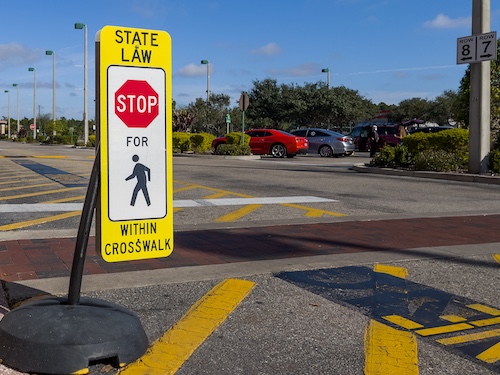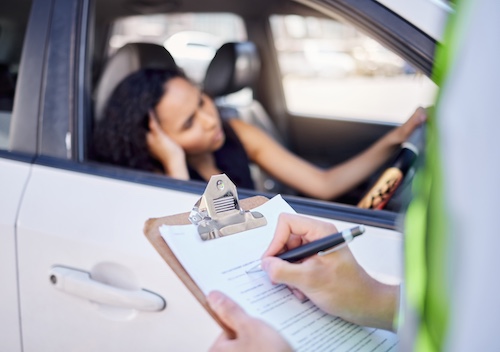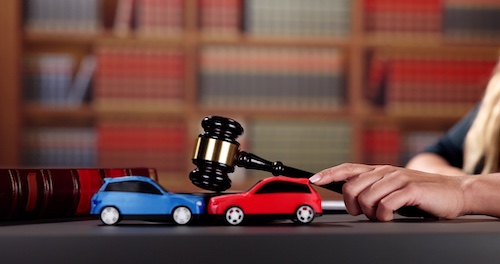Why Traffic Laws Matter in Charlotte Car Accident Claims
Traffic laws control how drivers move, stop, and interact on North Carolina roads. When these rules are broken, the results can be costly. In Charlotte, even small traffic violations like speeding, failing to signal, or ignoring traffic signals can decide who is at fault after a crash. Under state traffic laws and strict legal standards, these mistakes often lead to denied insurance claims or full legal responsibility. Knowing how traffic laws apply to your accident is key to protecting your rights and getting fair compensation.
In this blog, we explain how North Carolina traffic laws affect accident claims, outline common violations that impact fault, and highlight why working with an experienced Charlotte car accident attorney is essential to protect your legal rights.
Understanding Fault Under North Carolina’s Contributory Negligence Rule
Fault is central to any car accident claim. In North Carolina, strict traffic laws and a unique fault rule can block recovery for many drivers.
North Carolina’s Contributory Negligence Law
North Carolina follows a pure contributory negligence rule. If a driver is even 1% at fault in a crash, they cannot recover damages. This rule applies to all types of motor vehicle collisions, including those caused by speeding, failure to yield, or ignoring traffic signals. The legal basis is found in N.C. Gen. Stat. § 1-139.
How Traffic Violations Affect Fault
A traffic violation often becomes key evidence in assigning fault. For example, running a red light, changing lanes without signaling, or not making a complete stop at a stop sign can shift liability. A law enforcement officer will typically cite one or more drivers at the scene. These traffic tickets help insurance adjusters and car accident lawyers evaluate fault.
Examples of Mistakes That Lead to Denied Claims
Many drivers lose the right to compensation due to simple mistakes. These include:
- Driving over the speed limit in city zones
- Failing to use windshield wipers in rain at night
- Not obeying lane signals on North Carolina roads
Even if the other driver was more careless, your minor traffic safety error may bar recovery.
Why Legal Counsel Is Critical
Because of this rule, working with a car accident attorney is essential. An attorney can examine state traffic laws, review the vehicle code, and identify how fault is being argued. Without proper legal counsel, drivers often lose claims they could have defended with stronger evidence.
Law Enforcement Reports and Their Role
After most accidents, a law enforcement officer writes an official report. These reports include details about road conditions, violations, and driver statements. Courts and insurance companies use these records to apply the state laws and decide who is legally at fault.
Key North Carolina Traffic Laws That Affect Car Accident Claims
North Carolina has specific traffic laws that directly influence who is at fault and what compensation is available after a crash.
Speed Limits and Driver Liability
North Carolina law sets maximum speeds under N.C. Gen. Stat. § 20-141. Driving above posted speed limits, or too fast for conditions, increases the chance of a crash. A speeding ticket can serve as strong evidence of fault. This applies on highways, rural roads, and city streets. In many cases, exceeding the speed limit by even a small amount can shift legal responsibility.
Seat Belt Use and Injury Claims
Seat belt laws are covered under N.C. Gen. Stat. § 20-135.2A. While seat belt use cannot be used to prove negligence, it affects how injuries are evaluated. A driver not wearing a seat belt may receive less compensation due to higher injury severity. Proper restraint use supports both public safety and personal protection.
Traffic Signals and Right-of-Way Rules
Failing to obey traffic signals often leads to serious intersection crashes. These rules are enforced under the Manual on Uniform Traffic Control Devices, which North Carolina follows. Stop signs, yield signs, and lighted signals control right-of-way at intersections. Violations like running a red light or failing to stop are used by both insurance adjusters and courts to assess fault.
Driving Under the Influence (DUI)
Driving while impaired violates N.C. Gen. Stat. § 20-138.1. Alcohol or drug use leads to criminal charges and civil liability. A DUI-related crash often includes claims for punitive damages. Evidence may include a breath test, officer observations, and arrest records. A driver charged with DUI is almost always considered at fault under state traffic laws.
Distracted Driving and Mobile Devices
Using a phone while driving is illegal under N.C. Gen. Stat. § 20-137.4A. This law restricts reading or sending text messages while operating a vehicle. Distracted driving reduces reaction time and increases the risk of rear-end collisions and lane violations. A traffic ticket for phone use supports a fault claim and may lead to denied coverage.
Turning, Lane Use, and Road Positioning
North Carolina law requires drivers to stay in proper lanes, signal before changing lanes, and turn safely. Failure to follow these road rules often leads to sideswipes or broadside impacts. Improper turns at intersections are a frequent source of fault in insurance disputes.
Night Driving and Visibility Requirements
State law requires working headlights, functional windshield wipers, and visible signals during low visibility. Crashes at night often involve failures to maintain proper lighting. Driving without headlights or ignoring visibility laws can make a driver liable even if the other vehicle also made an error.
How Violations Are Documented and Used in Legal Claims
After a car accident, violations of North Carolina traffic laws are recorded and often used as key evidence in legal claims.
Traffic Tickets and Citations
A traffic ticket issued by a law enforcement officer signals a legal violation. These citations often list offenses such as speeding, failure to yield, or ignoring traffic signals. The ticket itself may not prove fault, but it supports the argument that a driver disobeyed a state traffic law. Insurance companies review these tickets closely during their investigations.
Accident Reports by Law Enforcement
The responding officer usually files an official accident report. This report includes the time, location, and a summary of the crash, along with statements from drivers and witnesses. It may also list traffic violations or note failure to follow vehicle code requirements. These reports are used by car accident attorneys and courts to help assign fault.
Photographs and Road Evidence
Photos from the scene can show traffic signs, road markings, and vehicle positions. Skid marks, damage patterns, and debris help confirm violations like following too closely or unsafe lane changes. Combined with state laws, these visual records build a strong claim for or against liability.
Witness Statements and Driver Admissions
Witnesses often describe what they saw in terms of speed, signals, or unsafe behavior. If a driver admits to a traffic violation at the scene, that statement may be included in the report or noted by the officer. These details support or challenge claims based on state traffic laws and local ordinances.
Insurance Company Review and Use of Violations
Insurance companies analyze all available records. If a traffic law was broken, adjusters may reduce or deny compensation. In North Carolina, where contributory negligence applies, even a small mistake like failing to use windshield wipers during rain can prevent recovery. This is why traffic violations carry serious weight in claim decisions.
Legal Strategy and Evidence Collection
A car accident lawyer reviews every document for accuracy and legal value. They may request video from transportation departments, consult with accident reconstruction experts, and compare evidence to the North Carolina vehicle code. This process helps protect clients from false claims or unfair denials.
Steps to Take After a Traffic Law-Related Accident
Taking the right steps after a car crash tied to a traffic violation helps protect your legal rights and strengthens your accident claim.
Call Law Enforcement Immediately
Always contact a law enforcement officer after a crash, especially if there is injury, property damage, or a traffic violation involved. The officer will document the scene, issue any traffic tickets, and file an official accident report. This report is a critical part of the claim process.
Document the Scene Clearly
Take clear photos of the vehicles, license plates, traffic signals, and any visible signs of the violation such as skid marks or road debris. Include road conditions and any uniform traffic control devices in the area. These images help explain what happened and support your case under North Carolina traffic laws.
Exchange Information and Collect Witness Statements
Get names, phone numbers, and insurance information from all drivers involved. If anyone saw the crash, ask for a short statement or contact details. Witnesses often confirm lane violations, failure to yield, or speeding that may have caused the crash.
Seek Medical Attention Promptly
Even minor injuries should be checked by a medical professional. Medical records link your injuries to the crash, which is important in a legal claim. Some symptoms take hours or days to appear. Prompt care also shows that you took your health seriously.
Do Not Admit Fault or Discuss Traffic Violations
Avoid saying anything that could be used against you. Do not admit fault or speculate about your actions or those of others. Anything said to another driver, witness, or officer could appear in the accident report and affect how state laws are applied to your claim.
Request a Copy of the Accident Report
You can usually access the officer’s report through the North Carolina Department of Public Safety or your local police department. Review it for accuracy. Any mention of a traffic law violation should match what you know about the crash.
Contact a Car Accident Attorney
A car accident lawyer can review the facts, explain how traffic laws apply, and protect your interests. Legal counsel is especially important under North Carolina’s contributory negligence system, where even small mistakes can prevent recovery.
Consult With an Experienced Charlotte Car Accident Lawyer ASAP!
If you’ve been injured in a car accident and a traffic violation is involved, reach out to our team at 1Charlotte Injury Lawyers. Our experienced Charlotte car accident attorneys understand how state traffic laws affect your claim and will work to protect your rights from the start.
Contact us at (704) 706-2689 for a free case review today!







